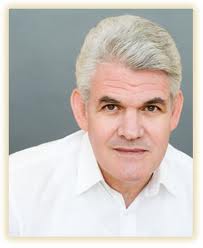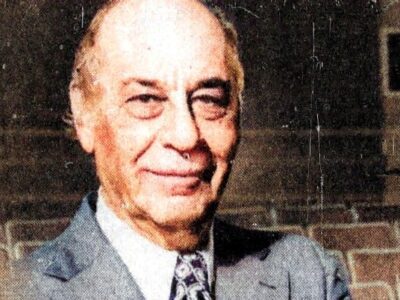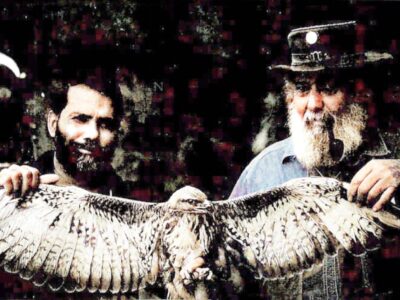“Darkness,” the fourth story in Avner Mandelman’s new collection Cuckoo, tells the story of an Israeli woman who opposes her sister’s romance with a Yemenite Jew and attains a Yemenite black-magic remedy to put an end to the match.
remedy to put an end to the match.
Told in the first person by the woman’s young son, this short and simple reminiscence seems as charming and pregnant with possibilities as any of the masterful pieces in Isaac Bashevis Singer’s In My Father’s Court.
When I first read “Darkness,” the ending baffled me. After reading the story again, I called Mandelman, hoping he might illuminate the story for me. “Who knows? It’s a mystery,” he said. “I can guess how to resolve it, but my guess is as good as yours.”
Like all ten of the stories in Cuckoo, “Darkness” is set in the Israel of at least a generation ago: Mandelman was born there in 1947, served in the air force in the late ‘60s (including during the Six Day War) and moved to Canada in 1973. A stock market speculator living in Toronto, he’s also a prize-winning short-story writer who’s been published in an impressive variety of publications. A previous collection, Talking to the Enemy, won the Jewish Book Award for fiction.
Mandelman’s tales usually rely on an irrepressible first-person narrator, often a son or nephew of the central character, who fills our ears with a series of remarkable happenings almost too incredible to be believed. Many revolve around relationship conundrums or triangles and quickly gather complications. He’s clearly fond of comically mismatched romances and entanglements as in A Midsummer Night’s Dream.
In “Mish-Mash,” the initial problem is stated in the opening line: “In 1958 my uncle Nathan Berkovitch married two women and went to live with them both in Haifa until, a year after the weddings, a delegate from Haifa’s Rabbinate caught up with him because of an anonymous snitch, and told him he must divorce one of the two or go to jail.”
In this story, the comic reversals, revelations and plot convolutions spill into a rabbinical beit din and threaten somehow to undo centuries of rabbinical decisions. “Before long there was shouting and screaming, accusations and counter-accusations and digging up of ancient quarrels, and also, shame to admit, tearing of hair, and even fisticuffs.” Ultimately a legendary rabbinical figure possessing Solomonic wisdom puts a brilliant end to this seemingly impossible dispute.
The author is an expert at developing complex plots and then resolving them by clever and often funny means. In “Cuckoo” (the title story) and “Take-Down,” both of which appeared earlier in the Parchment journal of Canadian Jewish literature, he utilizes the usual formula to achieve his usual dynamic and comic results.
His concern with Jewish halakhah, ritual, custom, sayings and superstition is never more evident than in stories like “Curse” and “Dybbuk,” which center around aspects of Jewish magical and mystical lore. However, his compression of and cleverness with plot are sometimes detrimental to his characterizations. For instance: since Avraham Schlein, the lead character in “Dybbuk,” seems little more than an empty cipher, is it any wonder he becomes possessed?
Two stories in the collection show a markedly different form. Told entirely through dialogue, “Authorization” focuses on the closed hearing of a special operative in Israel’s secret service who has decided, for humanitarian reasons, not to take down a terrorist as planned.
“Og,” told in the “objective” style of third person narration, is a historical-biblical sketch about Israel’s use of an alien army to commit barbaric acts it can then distance itself from. Is it meant to expose an ancient hypocrisy or stand as a modern allegory? Your guess is as good as mine.
Mandelman, who earned a creative writing degree from San Francisco State University in 1993, said he can knock off a short story in a surprising short time. “A couple of hours or a day — it’s not difficult,” he said. “It’s like brain surgery. You have to study 15 years first, but then the operation takes only three hours.”
Getting published, however, is not always that easy. After he received a cheque from an Israeli publisher for a first novel, the publisher’s female editors and translators objected strongly to some of his characters: Mandelman refused to make changes. “The chief editor called me and said, ‘I have a rebellion on my hands. Keep the money and take back the book.’”
He’s presently finishing a second novel, and somewhat wary of getting it into print. “The problem is, if you really agitate the reader, you also agitate the editor, and then it gets difficult finding a publisher.”
In the meantime, he isn’t about to give up his day job as a money manager. “I do this to supplement my writing income,” he said. “Writing pays about seven cents an hour. I’m about six-foot-six and I need to eat, so I have to work.” ♦
© 2004






